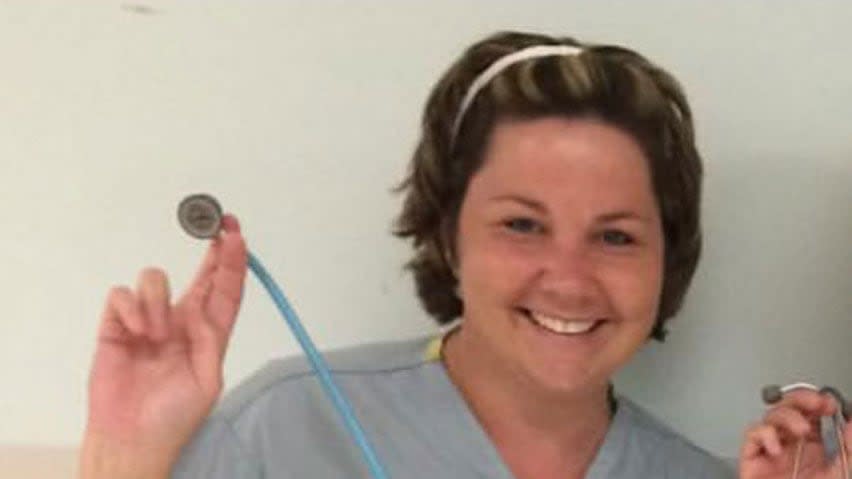Top N.B. court grants leave to appeal in proposed class action over labour-inducing drug

New Brunswick's highest court has agreed to review a judge's decision to not certify a class-action lawsuit that alleges a former nurse at the Moncton Hospital administered a labour-inducing drug to potentially "hundreds" of pregnant women without their consent.
On Wednesday, the Court of Appeal of New Brunswick granted leave to appeal in the case of representative plaintiff Jayde Scott against Nicole Ruest and her former employer, Horizon Health Network.
Justice Kathleen Quigg, who heard the motion on Monday, also ordered the respondents to each pay $1,500 in costs.
John McKiggan, co-lead counsel for the plaintiffs, said he's pleased the court has agreed to hear the appeal.
"Hopefully the Court of Appeal will agree that a class action is the most appropriate process so that the mothers that are part of this class action can finally get answers about what happened to them," he said in an emailed statement.

Plaintiff lawyer John McKiggan has said the eight women who submitted affidavits are a small sampling of the potential class. (Graham Thompson/CBC)
The lawsuit began nearly five years ago.
In her statement of claim, representative plaintiff Jayde Scott said she was admitted to the Moncton Hospital on March 27, 2019, in preparation for the delivery of twins.
She alleges Ruest inserted an intravenous line and, shortly after, she experienced strong and prolonged contractions, which caused the twins to go into fetal distress, ultimately resulting in her undergoing an emergency C-section over concern for their well-being.
The next day, her obstetrician told her that she found oxytocin in her IV bag and that Ruest had been fired, according to the court document.
Oxytocin causes the uterus to contract and can be dangerous for the health of the fetus as it can cut off oxygen supply and affect the fetal heart rate.
Affidavits from seven other women describe similar experiences.
None of the allegations has been proven in court.
Crown prosecutors determined there wasn't enough evidence to proceed with criminal charges after an RCMP investigation.
Class action not appropriate, judge ruled
On Nov. 29, Court of King's Bench Chief Justice Tracey DeWare denied a motion to certify the class action. In a written decision, DeWare said she didn't think a class-action lawsuit would be appropriate for litigating the claim against Ruest and Horizon.
"In reviewing the common issues and the evidentiary record, I am unable to conclude that there is an identifiable class from which common issues arise that will best be resolved through the mechanism of a class proceeding," DeWare wrote.
"I am equally unable to conceive of an appropriate litigation plan that would allow a class proceeding to be truly the most efficient way to manage these potential claims of medical malpractice and negligence."
According to McKiggan, medical malpractice is "among the most expensive, complicated, difficult and time-consuming of all personal injury claims."
He contends it would be "impractical" for the "hundreds" of women who believe they were inappropriately given oxytocin to file individual claims and expert evidence.
Ruest's Toronto-based lawyers, Andrew Faith and Emily Young, did not immediately respond to a request for comment Friday on the Court of Appeal's decision.
Horizon's Fredericton-based lawyers, Andrea Pierce and Ryan Burgoyne, could not immediately be reached for comment.
A date for the appeal, which will be heard by a full panel, has not yet been set.


